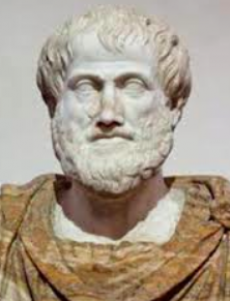
Email: lienaaltai@icloud.com
Total Article : 47
About Me:Sixth form student with an interest in a wide variety of topics such as languages, history, philosophy, politics and literature

Since the development of Kant’s ethical theories during the age of enlightenment, the world of ethics has filled with a wide array of normative ethical theories. Amongst these, theories such as utilitarianism, Natural moral Law, and of course Kantian ethics show us how to live our lives. Essentially, these theories give us a structure by which we can be good people. As these theories became numerous, complicated, and even extreme, humanity seems to have experienced a bombshell of ethical discernment. This is how our current ethical situation is described by Alistair McIntyre, who states that due to this enlightenment, we no longer pay attention to our ethical decisions.
So how can we return to ethical behaviour? McIntyre suggests a return to Virtue ethics, a theory first developed by Aristotle. Rather than focusing on actions being right or wrong, virtue ethics focuses on how to be a good person. It looks at what makes a good person, which we may label as good virtues, Virtue ethics asks 'what sort of person ought I be' rather than 'how ought I to act'.
This may to many, seem a little vague. How do we develop virtues? What are the virtues? Aristotle began to lay out the essentials of Virtue ethics in his book “Nichomachean Ethics”. He distinguishes first between things that are good as means, and things that are good as ends. He suggests that we should always attempt to live in harmony with others, as community is essential to a virtuous life. Aristotle saw people as rational and social beings, and that the wellbeing of a group is almost more important than that of a single member.
So how does one acquire virtues? Aristotle discerned between intellectual virtues, and moral virtues. Intellectual virtues are developed through training and education, whilst moral virtues are developed through habit. He writes, 'we acquire virtues by first doing virtuous acts. We acquire a skill by practicing the activities involved in the skill. For example, we become builders by building; we learn to play the harp by playing the harp. In the same way we become just by doing other acts, temperate by doing temperate acts and courageous by doing acts of courage'. Through this, Aristotle begins to develop a Proactive ethical code. Rather than a reactive environment in which one reacts to an ethical dilemma as it happens, one must be adequately prepared beforehand, having developed virtues already. Unfortunately, he believed that while all people have the potential to develop moral and intellectual virtues, only a few will actually achieve this.
Aristotle introduces more specificity on how to achieve virtue through the Golden Mean. He believed that there are two extremes to every act – the vice of excess, and the vice of deficiency. The Golden Mean is to find the balance between these two, and thereby finding the best way to live in society. An example of this would be finding the balance between Cowardice (the vice of deficiency) and Rashness (the vice of excess). Courage is a virtue that falls between these. This Golden Mean however is not a mathematical one. A key aspect of virtue ethics is its subjectivity, the adaptability of the virtues to any ethical situation. Whilst a mathematic mean would give an objective answer to any ethical dilemma in a similar fashion to other normative ethical theories, the Golden Mean allows a different outcome for any situation. Finding this mean relies on our use of phronesis (practical wisdom), a quality that we acquire as we grow up and move away from the demands of authority.

0 Comment:
Be the first one to comment on this article.